I would not be the person I am today without camp.
-15-year-old camper
My three decades of camp experience, coupled with my own and others’ research, have shaped my long-held opinion that camp experiences benefit children in profound ways. Yet even I was astounded by the revelations shared at our closing campfires last summer for the campers who were completing their final seasons as campers. These campfires were an emotional time to say goodbye to our high school kids heading into 10th grade.
After their counselors spoke about each of them and shared words of affirmation and encouragement, I asked the kids if they wanted to share anything they had learned at camp they might use throughout their lives. I knew we had a special gig going at camp, and that we were providing a positive, healthy community where kids could have fun, make friends, and grow, but I hadn’t heard the specific life lessons that they believed they learned at camp in such direct and heartfelt words spoken out loud.
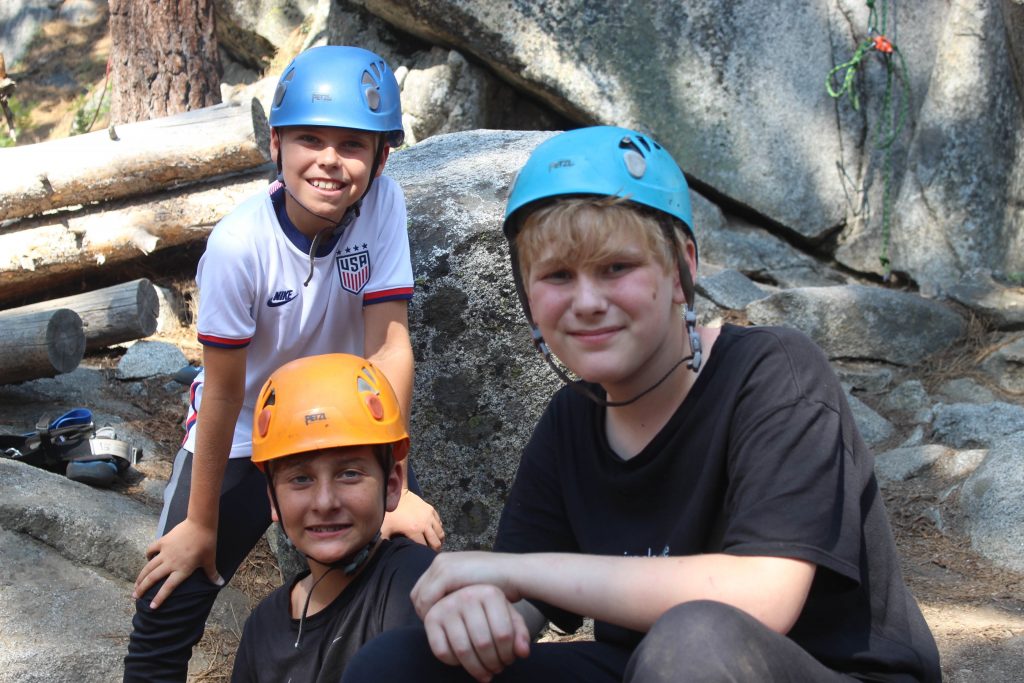
Our oldest campers shared that they learned how to be happy, “to just have fun and not worry so much.” In a time when so many young people struggle with depression and anxiety, it was heartwarming to hear that, for many of them, camp is their “happy place.”
Campers also said they learned to be happy in their own skin, gaining confidence in their abilities, speaking up for things they believe in, and worrying less about what others think of them. “I have the freedom to be myself,” said one. Added another, “When I am at camp, I am a better version of myself than anywhere else on Earth.”
Being their truest selves, they found, paved the way for them to meet new people and explore new friendships. “Camp has made me a more open and caring person,” said one. At camp, many said they experienced a sense of belonging they didn’t always feel in their schools.
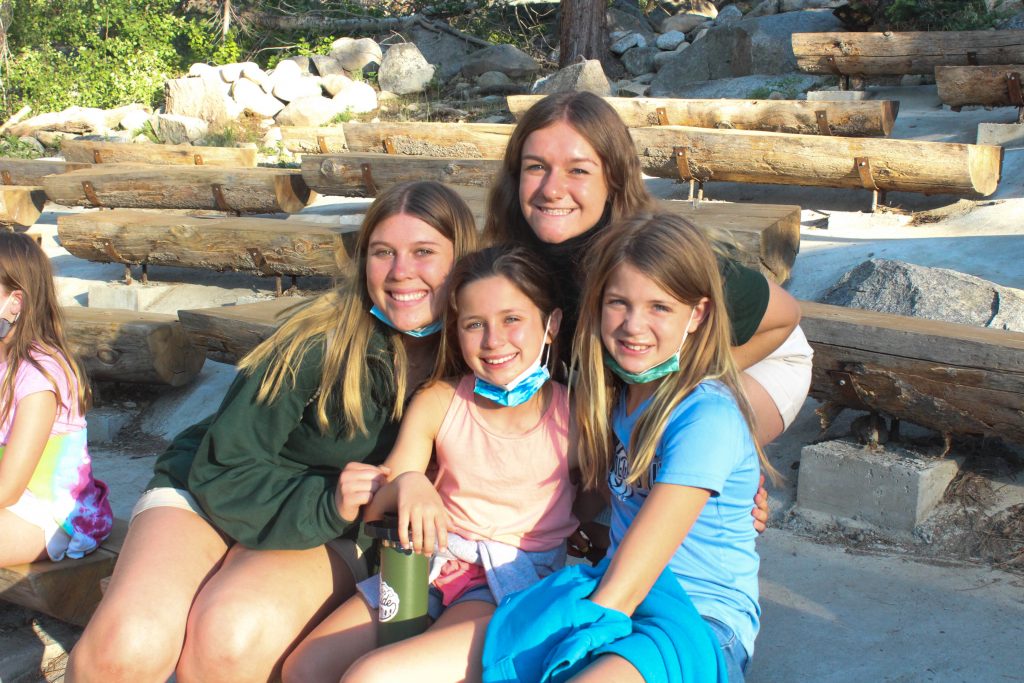
This comfort at camp enabled them to take risks and conquer fears, and they challenged themselves in new and adventurous ways. It didn’t matter if they failed, they said, because they were surrounded by counselors and friends who supported them no matter the outcome. “I’ve learned that the magic happens,” said one, “outside of your comfort zone.”
But among the sentiments that cheered me most from those older campers was the idea that camp helped them learn to live in the moment, to enjoy where they were in the Great Outdoors, and not worry about what the future held. Said one, “I found a passion for the outdoors I thought I would never have.” That’s what tends to happen, of course, when kids are unplugged from their technology for a time. Experiences and relationships are more vibrant and real, and kids expressed how great it was to connect face-to-face.
I really loved the way one camper put it: “When I was put in a cabin group with seven other random girls, we bonded really well and didn’t judge each other before we got to know them, because we had never seen each other’s social media profiles.”
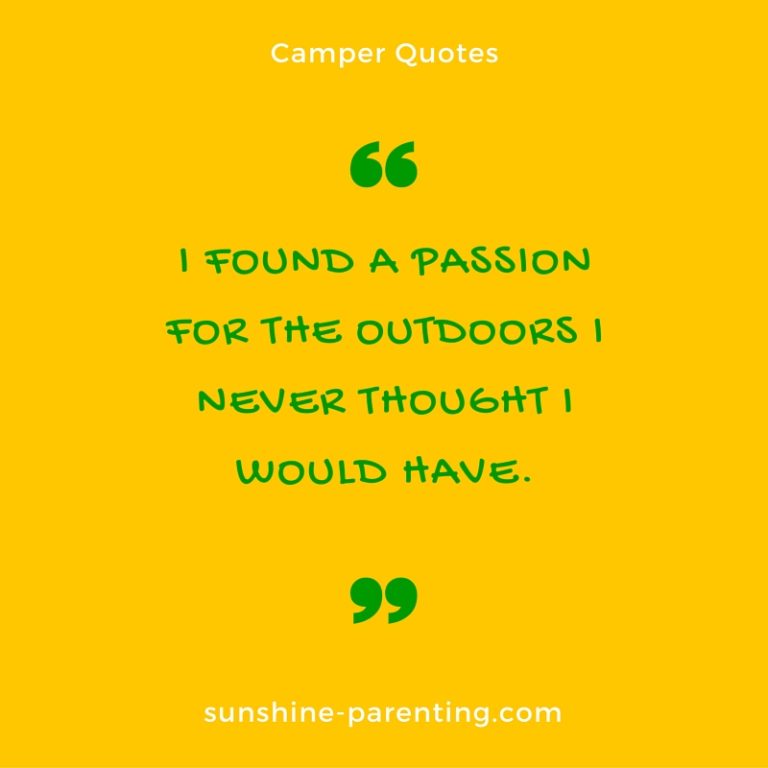
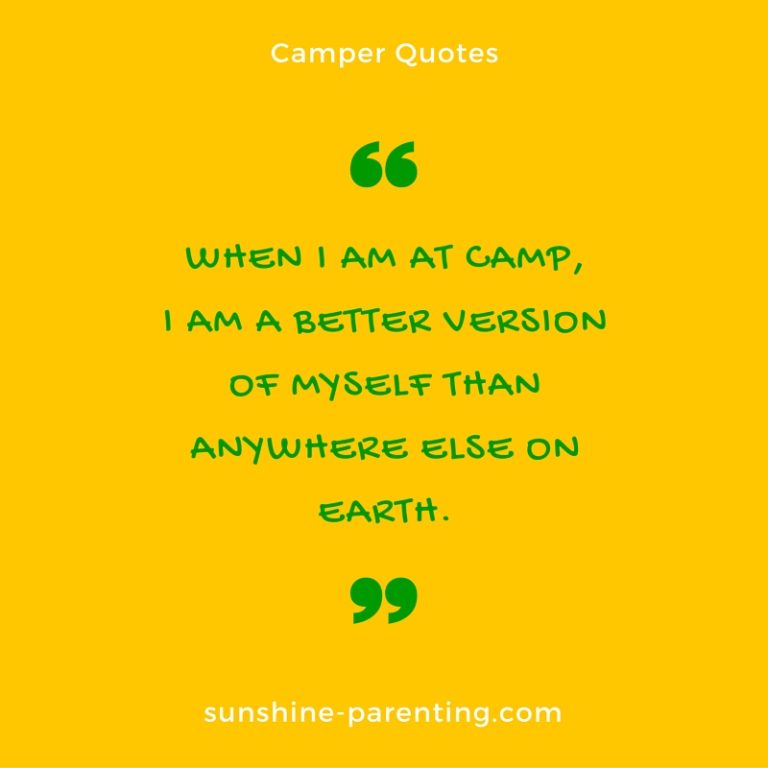
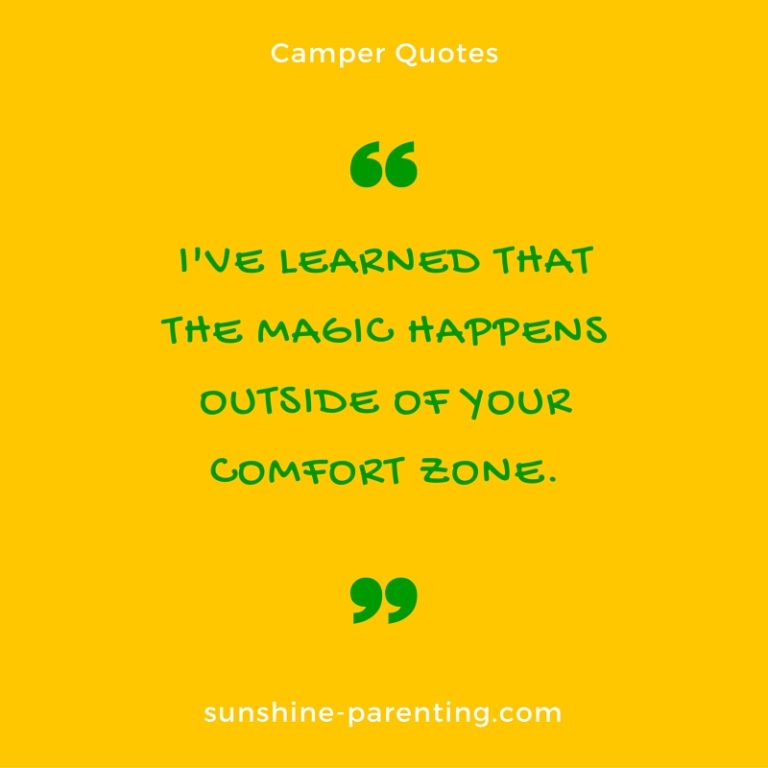
I reflect back on those and other words and see that these 15-year-olds have wisdom that many adults have yet to acquire. Truly, I was blown away by what they said they learned at camp, and I could see in their spirits what one of them expressed: “Being at camp has influenced me to be a better person who wants to be a leader, not a follower.” I feel honored to know these articulate, honest, and thoughtful young adults who do not fit the teenage stereotype and are far more mature than I was at their age. These kids chose sleeping outdoors and sitting around a campfire instead of hunching over their phones.
When I look back on those memorable campfires, I feel deep gratitude for our oldest campers, the life-changing experiences they had at camp, and that I had the opportunity to play a small role in their learning. I am also grateful for the parents of these kids who were willing to share time with their children, and a piece of their childhoods, with our camp. And I am reminded, as a parent, that although there are many things I want my kids to learn—and I’d love to be their teacher—many of their best lessons will come from experiences apart from, and from someone other than, me.
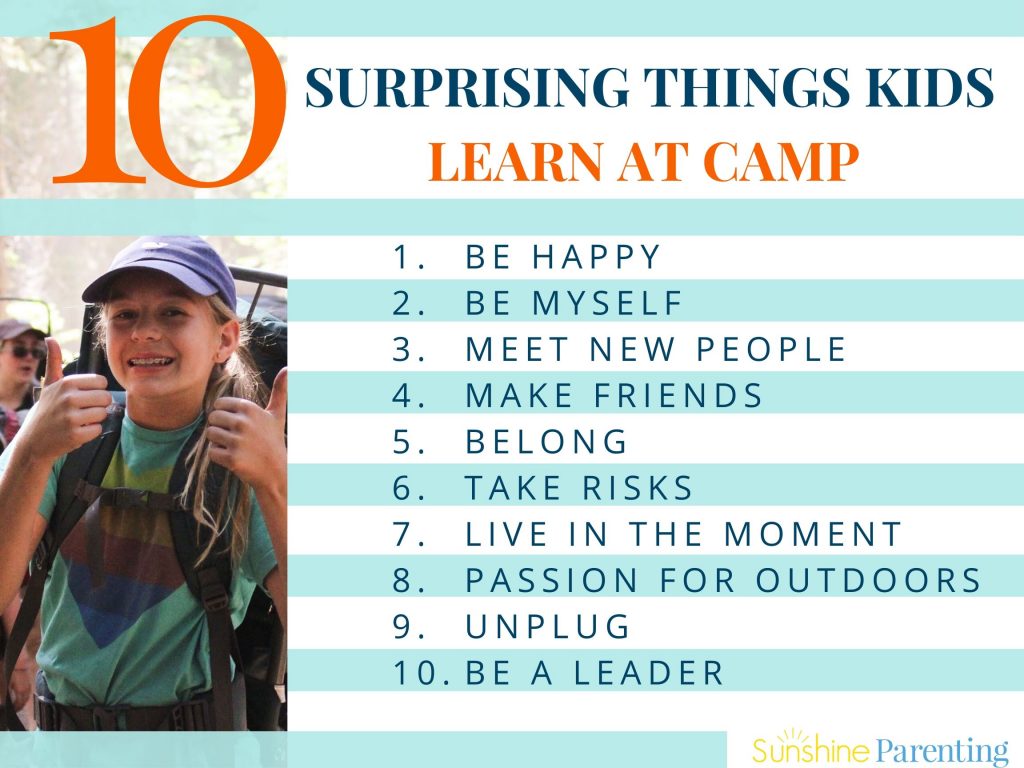
Article originally published at Sunshine Parenting.
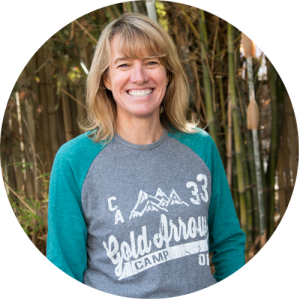
Audrey “Sunshine” Monke, MA, has been the owner of Gold Arrow Camp since 1989 and currently serves as the Chief Visionary Officer. In addition to her vision-casting and mentoring at GAC, Sunshine is an author (Happy Campers: 9 Summer Camp Secrets for Raising Kids Who Become Thriving Adults), podcast host, speaker and coach on the topics of parenting, social skills, and happiness. Find out more at her website, Sunshine Parenting.
Check out GAC’s Kindness Calendars for the 2022 year! Click on each month for a printable version or click here to print all 12 months!
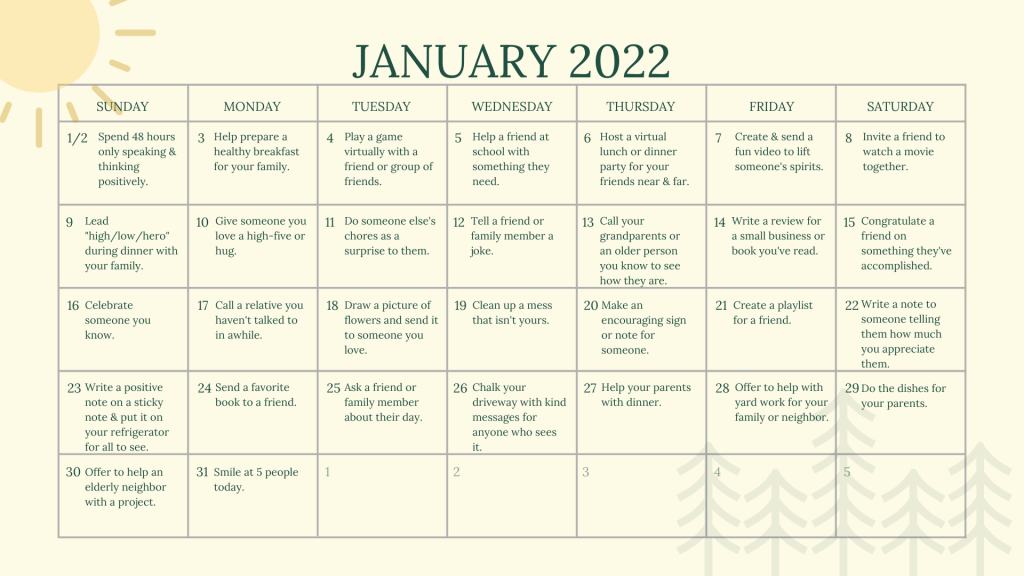
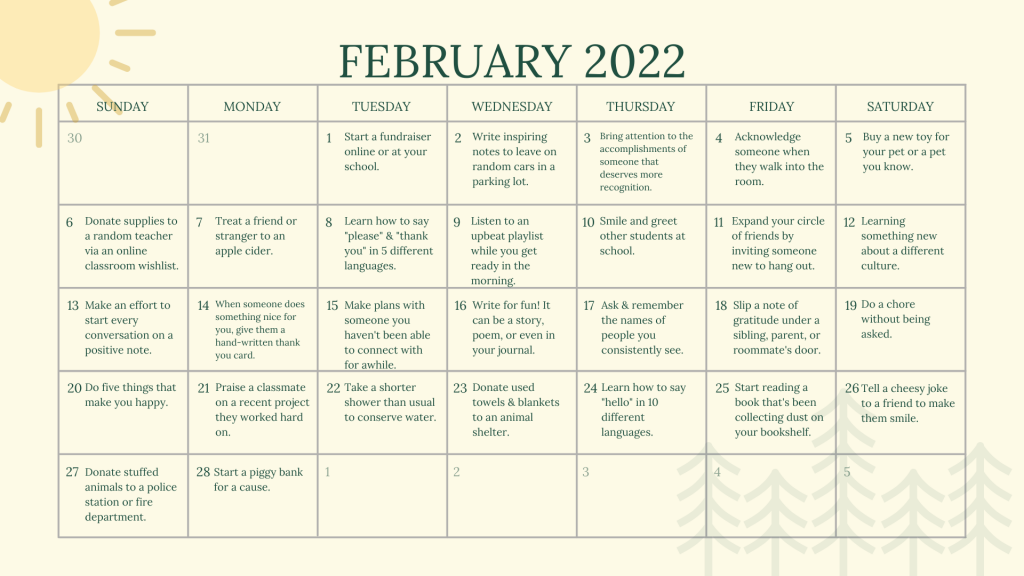
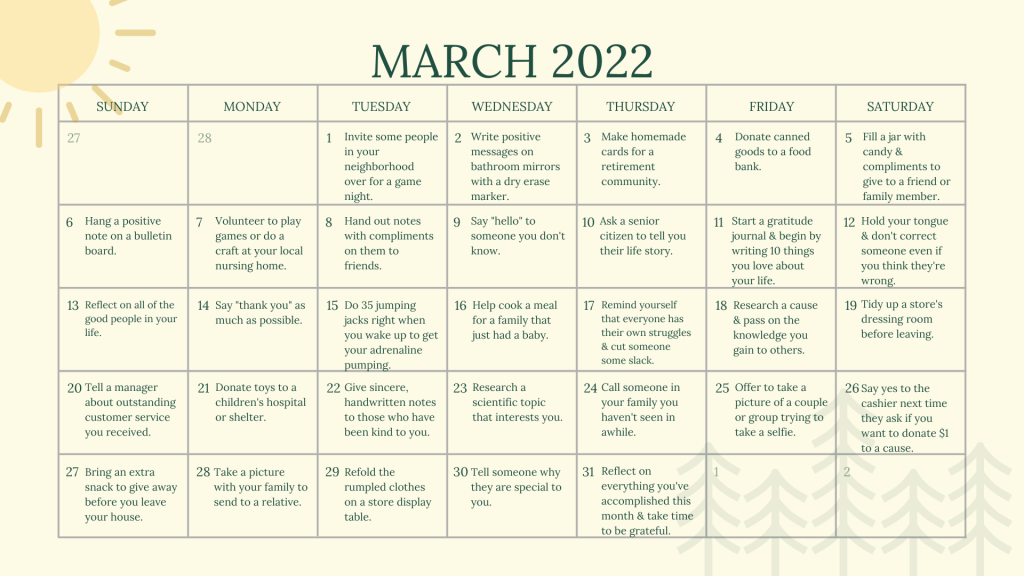
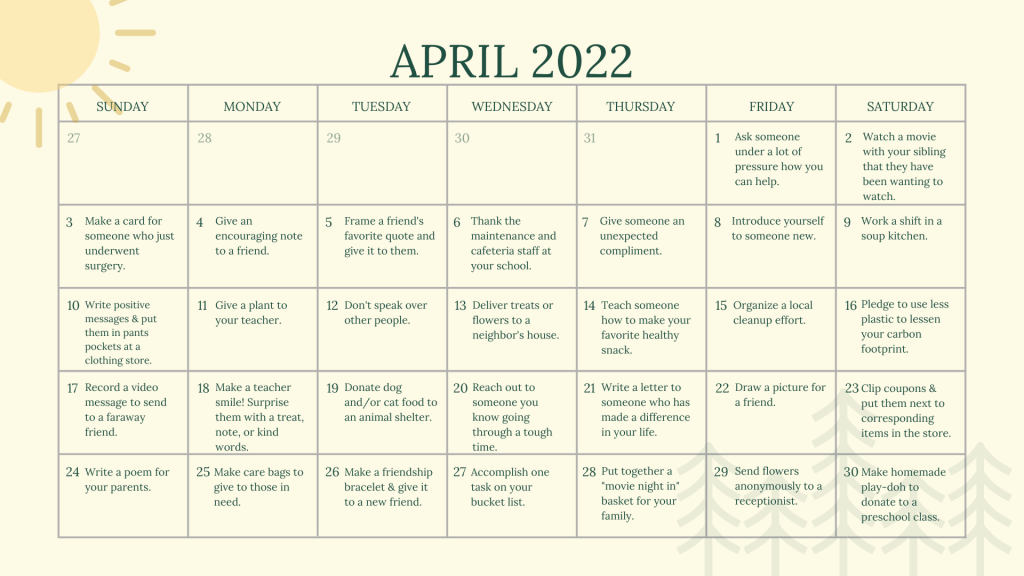
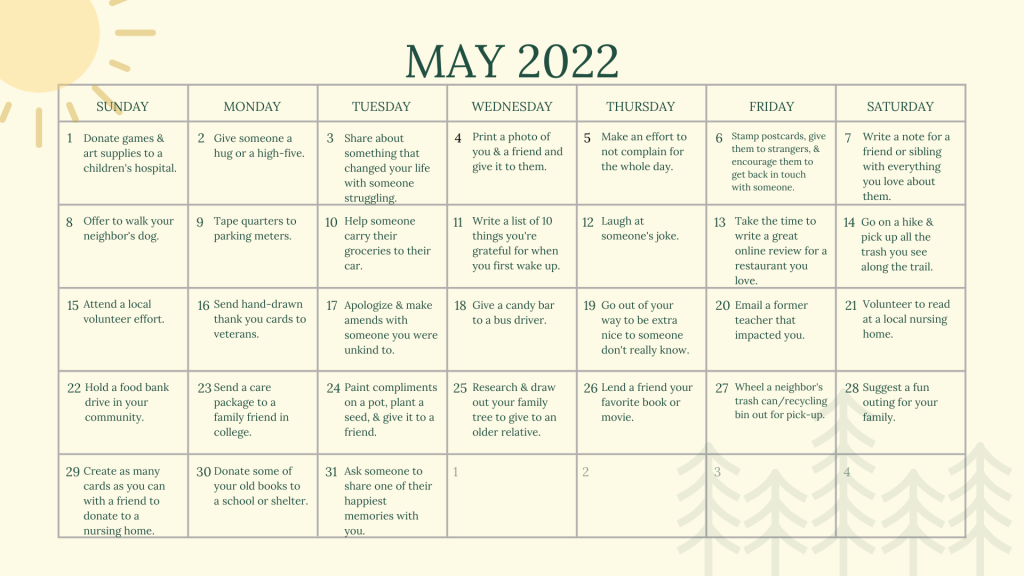
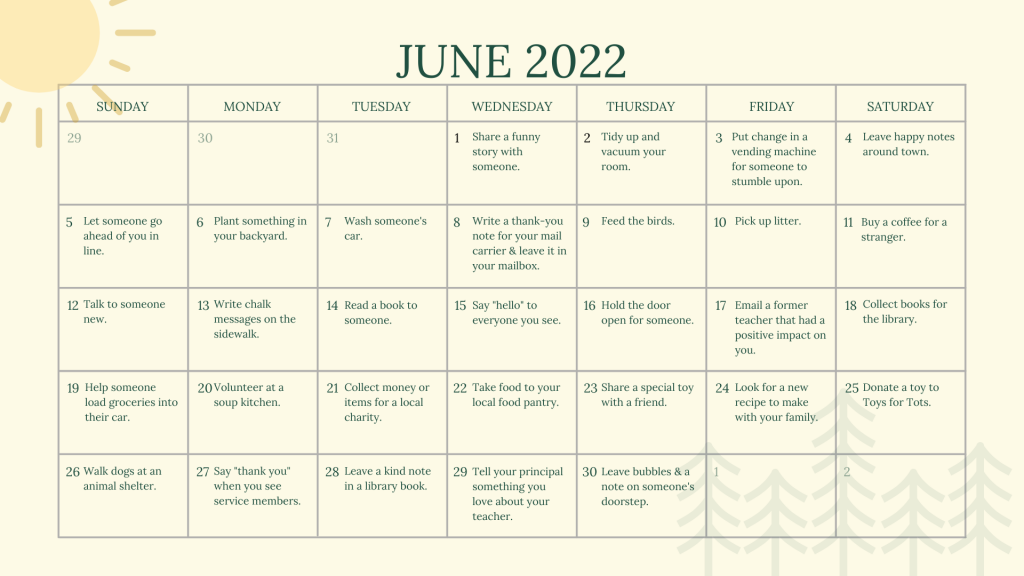
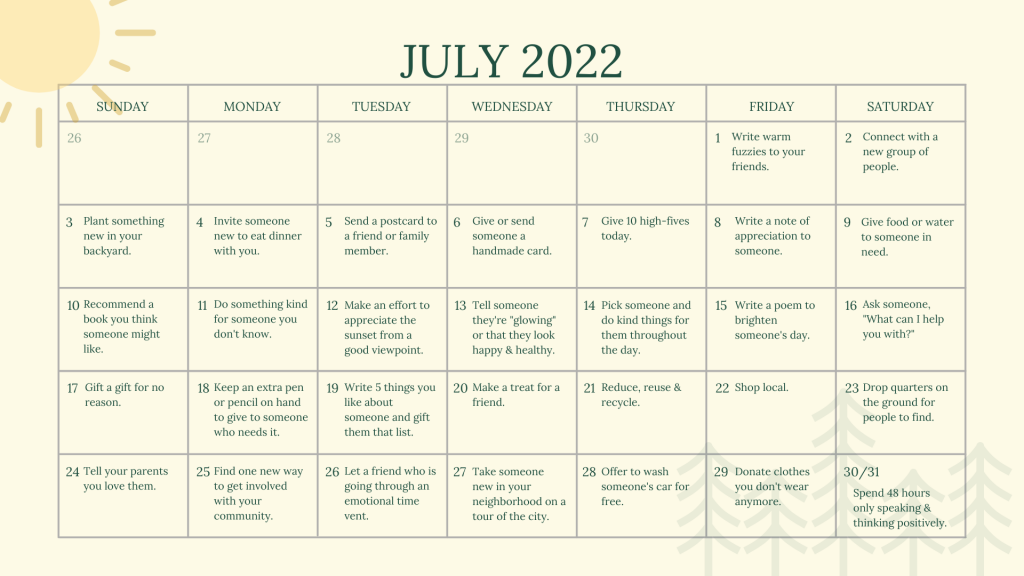
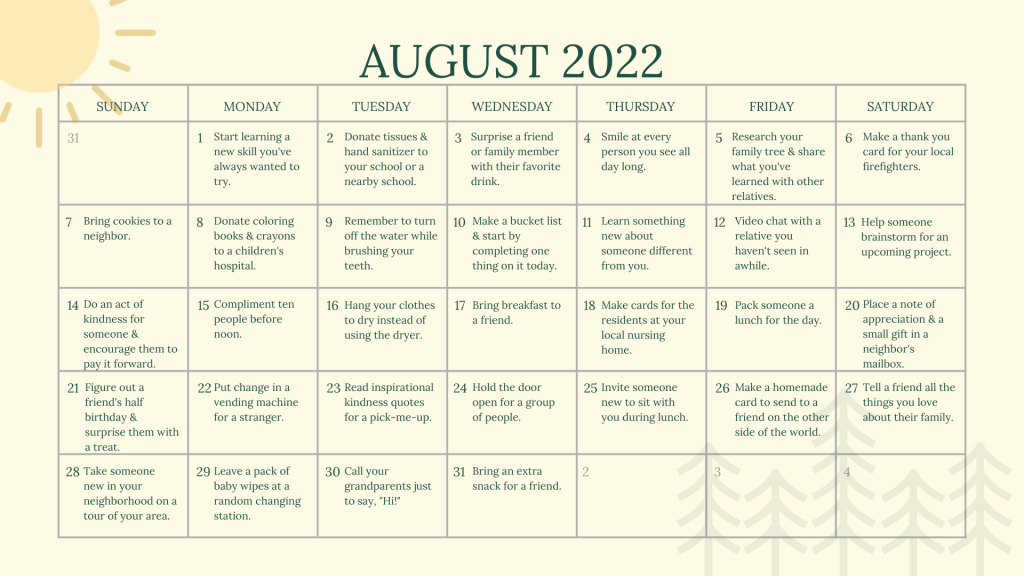
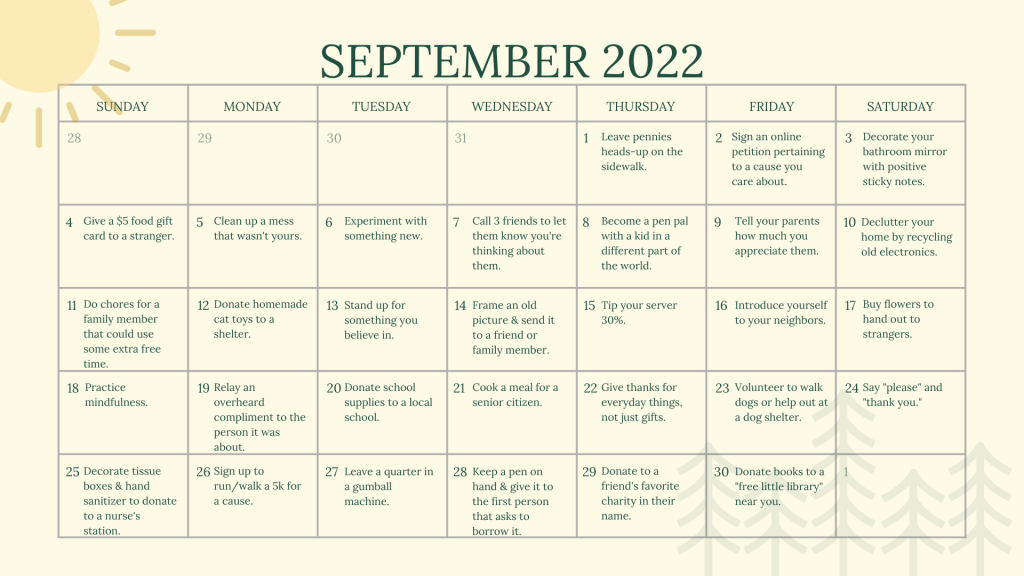
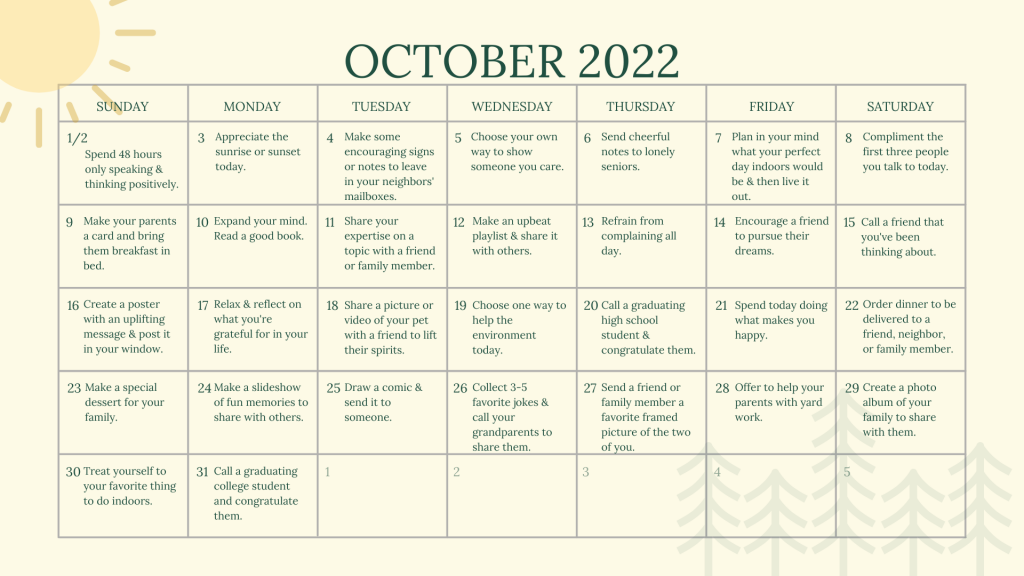
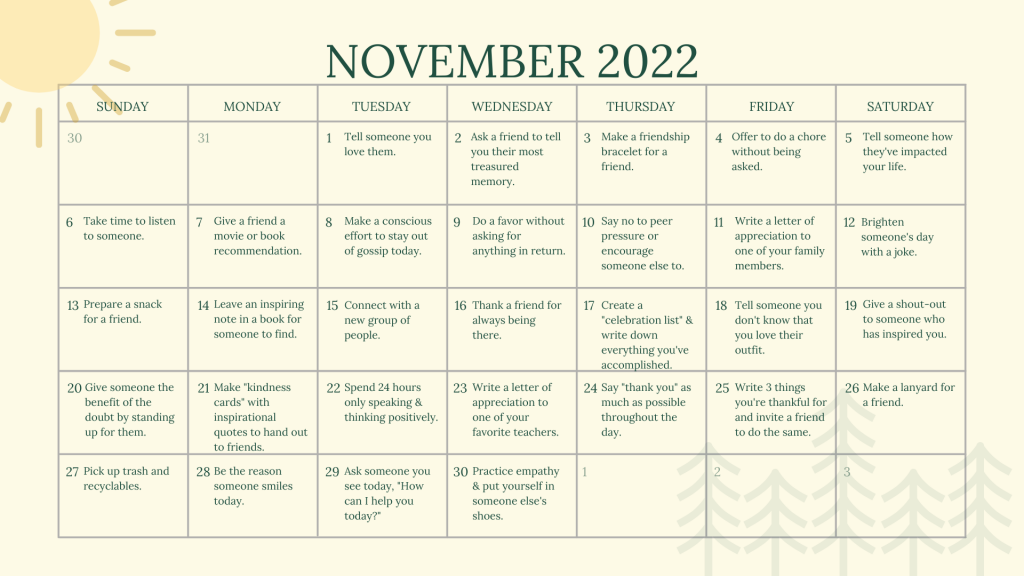
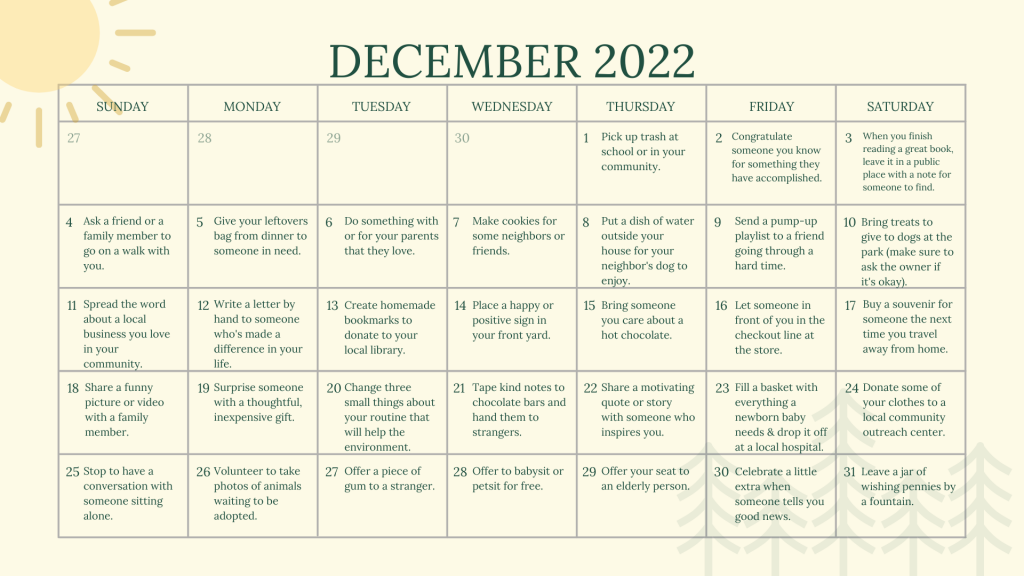
By Audrey “Sunshine” Monke. Originally published at Sunshine Parenting
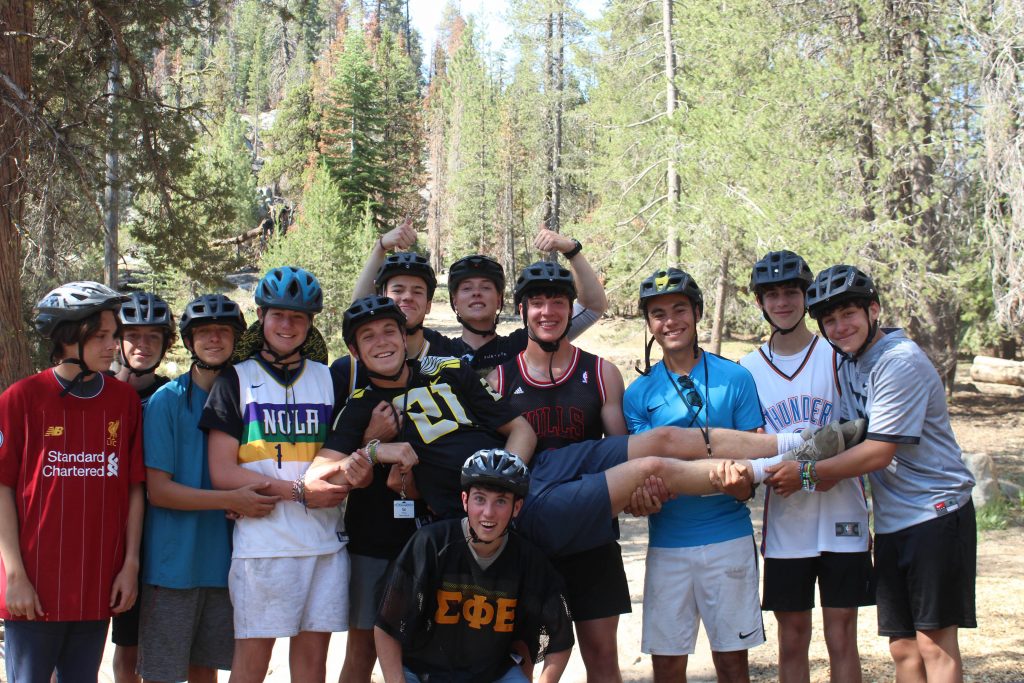
“In a … study of 515 senior executives, emotional intelligence was a better predictor of success than either relevant previous experience or high IQ.” -Forbes, “Look for Employees with High EQ over IQ”
In a world where anyone can look up a fact or equation and where machines are replacing even complex workplace tasks, employers need employees who can interact effectively with other people. This is one of the most important skills teens learn at camp. In the unplugged, non-competitive camp culture, teens build up their “emotional intelligence” (EQ), their face-to-face communication and relationship skills. 21st-century employers need people who can communicate, collaborate, and cooperate with others, and teens who come to camp get to practice those skills every day.
If you are debating whether your teen can miss a few weeks of SAT prep or a summer academic program, know that the 1600 SAT score will never outweigh the important communication and relationship skills he or she will develop at camp. Whether on a backpacking trip, cheering each other through a ropes course, or chatting around the campfire, the interpersonal skills teens build are the same ones they’ll need to be successful adults in families, communities, and companies.
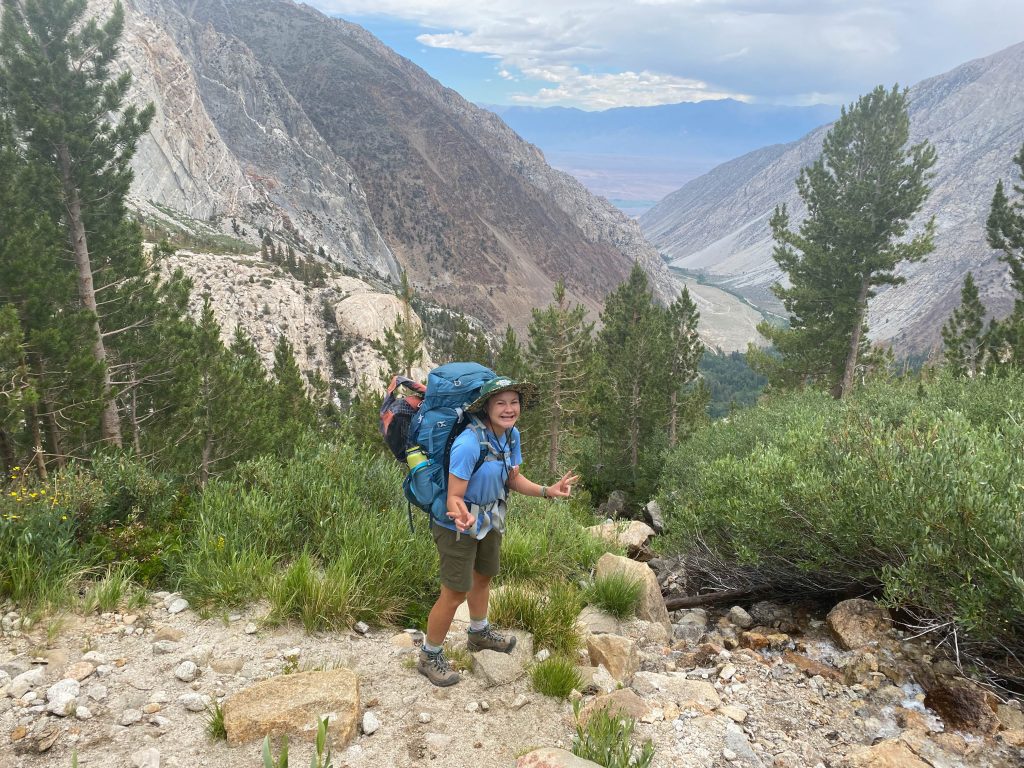
Teens thrive on risk. Thanks to recent findings (described in Age of Opportunity and Brainstorm) about the unique attributes of the teen brain, we now understand the reason for the “mortality bump” for 17-year-old boys. They do stupid, daring things not because they aren’t aware of the dangers, but because—to them—the reward of leaping from a rocky cliff or speeding along a curvy mountain road seems to outweigh the risk.
A teen at camp has the opportunity to take many safe, controlled risks. Climbing to new heights on a rock wall or ropes course, jumping the wake of a boat on a wake board, or reaching the peak of a 10,000-foot summit are all healthy risks teens take at camp. Plus, being in a controlled camp environment frees teens from exposure to health risks like alcohol and drug use.
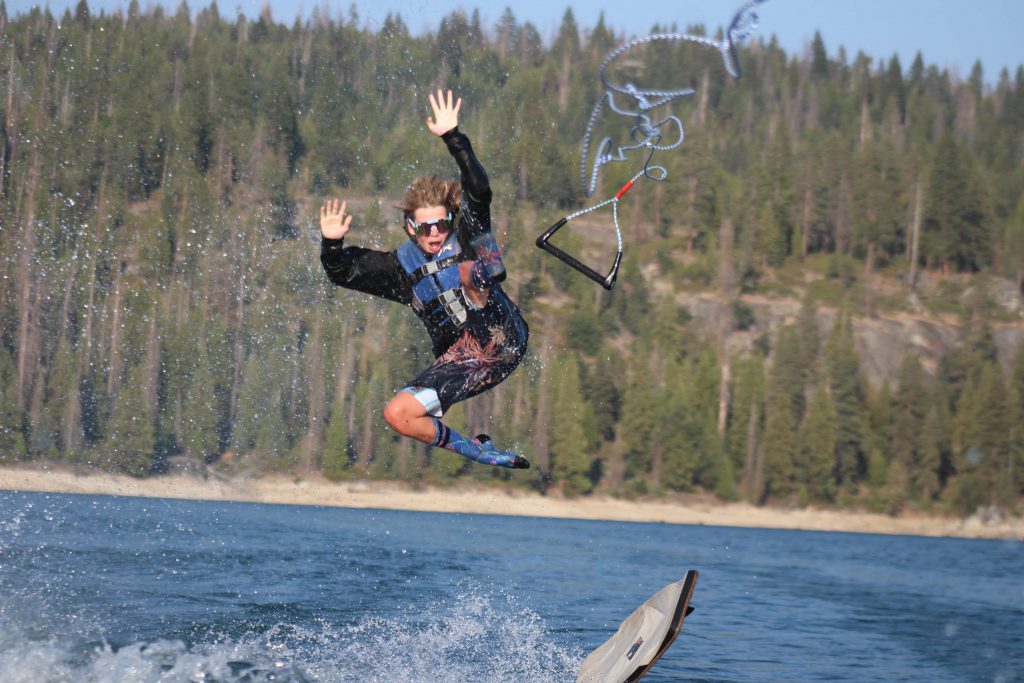
“A profound gap exists between the knowledge and skills most students learn in school and the knowledge and skills they need for success in their communities and workplaces.” –Partnership for 21st Century Skills
Schools aren’t doing a very good job teaching kids grit, perseverance, and leadership. But that’s not their job. Rather, schools are VERY busy teaching the core curriculum and assessing how well our kids know it. No school has time to see how “gritty” a kid is, but at camp, the “grit-meter” is always running, and it’s personal character—not a report card or an athletic achievement—that rises to the top.
Teens also develop other important life skills at camp, including independence, responsibility, and decision-making. Teens grow considerably in an environment away from their parents where they are forced to live on their own and find their own resources.
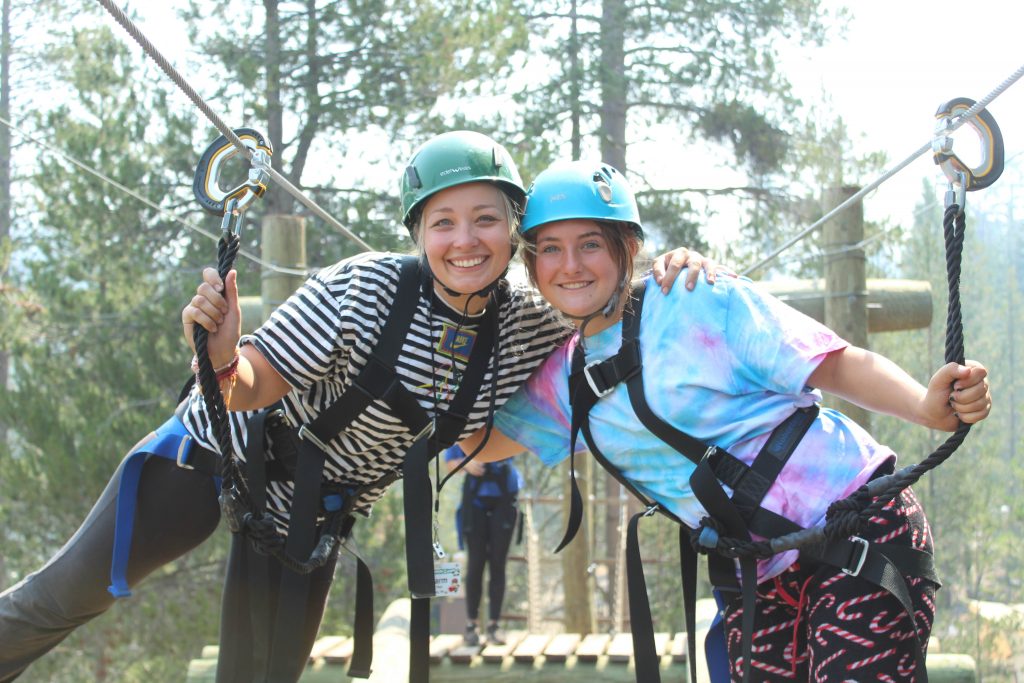
Watch or listen to a popular music video, reality TV show, or sports event, and you’ll be hard-pressed to find positive young adults teens can emulate. But walk into any well-run summer camp and you’ll be surrounded by wholesome, outdoorsy young people who like being around others and doing fun activities. Camp offers teens the opportunity to be among young adults who are positive role models and to form close relationships with them. Most camp counselors are hard-working college students who want to serve others. They are friendly, personable, and are just the kind of young adults you want your teen to become.
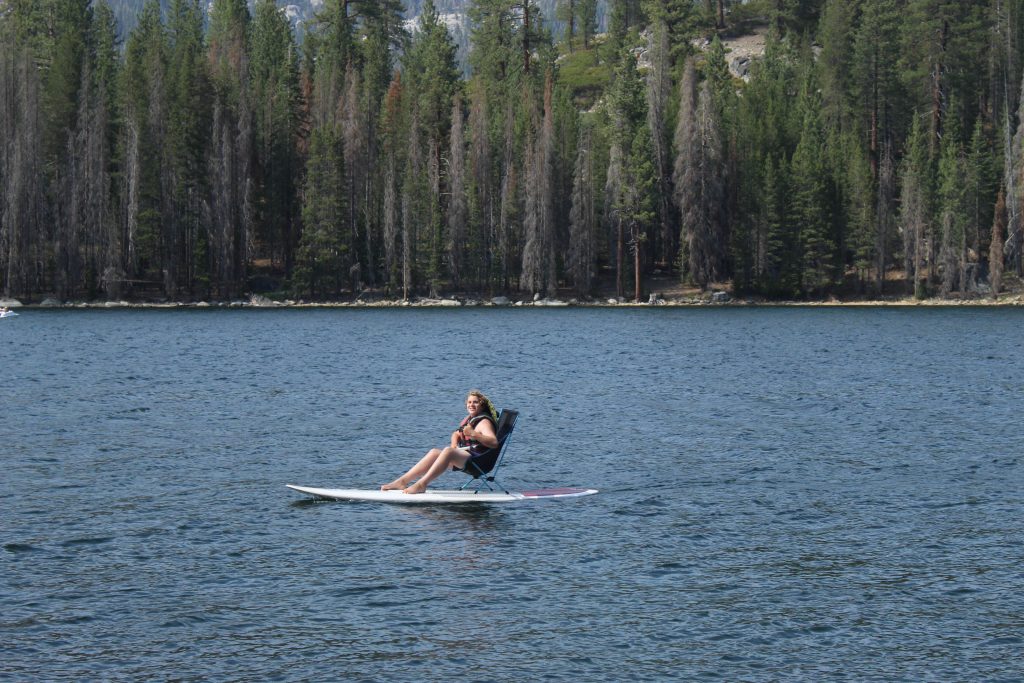
We live in a world where teens—often by their own parents—are steered towards success via the SAT, the college admissions grind, a “good” major, and a high-salary job. Look around at many adults, however, and see where that path got them. Despite knowing better, we still expose our kids to the same gauntlet.
Perhaps college education is the best option for most young people, but I’ve met many who are halfway done (or all the way done) and still don’t know who they are or what they are passionate about. Camp experiences offer teens the chance to step back from the treadmill of academics, competitive sports, and their sleep-deprived, over-scheduled existence, and instead think about what’s important to them. Many campers become less self-absorbed after spending a few weeks at camp, learning to train their focus on others. They also discover new hobbies and avenues to pursue in education and their future careers.
Each summer, tens of thousands of teens leave their phones and car keys at home and head to summer camp as campers, counselors in training, or counselors. Many teens who have never been to camp cannot relate to how a teenager could make such crazy personal sacrifices. And yet, teens are the age group that fills most quickly at many camps. Because, perhaps more than any other time during youth, camp offers the respite, recreation, and renewal to help teens thrive. Teens who have already been to camp know this and want to come back, year after year.

Gold Arrow Camp offers a Junior Counselor Program for returning GAC campers and an Outdoor Leadership Course for teens (grades 9th-11th).
Originally published at Sunshine Parenting.

Audrey “Sunshine” Monke, MA, has been the owner of Gold Arrow Camp since 1989 and currently serves as the Chief Visionary Officer. In addition to her vision-casting and mentoring at GAC, Sunshine is an author (Happy Campers: 9 Summer Camp Secrets for Raising Kids Who Become Thriving Adults), podcast host, speaker and coach on the topics of parenting, social skills, and happiness. Find out more at her website, Sunshine Parenting.
Recently, I’ve been going through the many boxes of letters, photos, and memorabilia which I have collected over my first five decades. It’s been a time-consuming task, but I’m trying to organize into a smaller number of boxes what has been accumulated over the first half of my life. What has struck me most is the huge number of letters I amassed from my childhood, high school, and college friends. Until this week, I didn’t remember how much we corresponded, but I just finished going through hundreds of letters. I now have proof of the many friendships that were solidified over hours of writing to one another.
I mostly have the ones written to me, but I can assume from the “Thanks for your letter”s that I was writing at the same rate as my friends were. Maybe some of my letters are in a box out there somewhere?
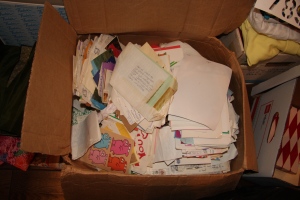 Not only was there a huge volume of letters (see picture), some of the letters were ten pages long, with tiny writing. Others were short notes or fun greeting cards. Most of them were in beautiful, cursive writing, even some from boys! What an amazing thing to think about. Back then, without the distractions we all have today, we had TIME to write letters like that! Plus, we enjoyed it and we were good at it! We wrote letters because often long-distance phone calls were too expensive. Many of us traveled and studied overseas, so the letters chronicle our trips.
Not only was there a huge volume of letters (see picture), some of the letters were ten pages long, with tiny writing. Others were short notes or fun greeting cards. Most of them were in beautiful, cursive writing, even some from boys! What an amazing thing to think about. Back then, without the distractions we all have today, we had TIME to write letters like that! Plus, we enjoyed it and we were good at it! We wrote letters because often long-distance phone calls were too expensive. Many of us traveled and studied overseas, so the letters chronicle our trips.
The process of trying to get rid of most of this paper required that I at least skim through each one. I pulled out many that I simply can’t bear to throw away. I found letters from my late grandparents, with their words of wisdom. I found letters my parents had written to me over the years. I also found letters from friends showing major teen angst, which is a good reminder now that I have teens of my own. We weren’t that different back then after all! It’s just that we didn’t splash our anger and sadness at each other on Facebook. We wrote each other heartfelt notes.
One thing I realized is that my kids will not have a big box of letters like mine. They don’t write letters like we did in the pre-computer, pre-email, pre-social networking, pre-cell phone era. But then I had a revelation! They DO still get to send and receive letters. It’s when they’re at camp! I have told parents how much campers enjoy getting “real” mail while at camp (the kind with a stamp), but now I have realized another benefit – they will have these letters as keepsakes and memories of their childhood. And you, as parents, most definitely should save all of the letters you get from your camper!
Among my box, I came across a postcard I sent to my parents in 1977, when I was a camper at Gold Arrow Camp. This is what it said:
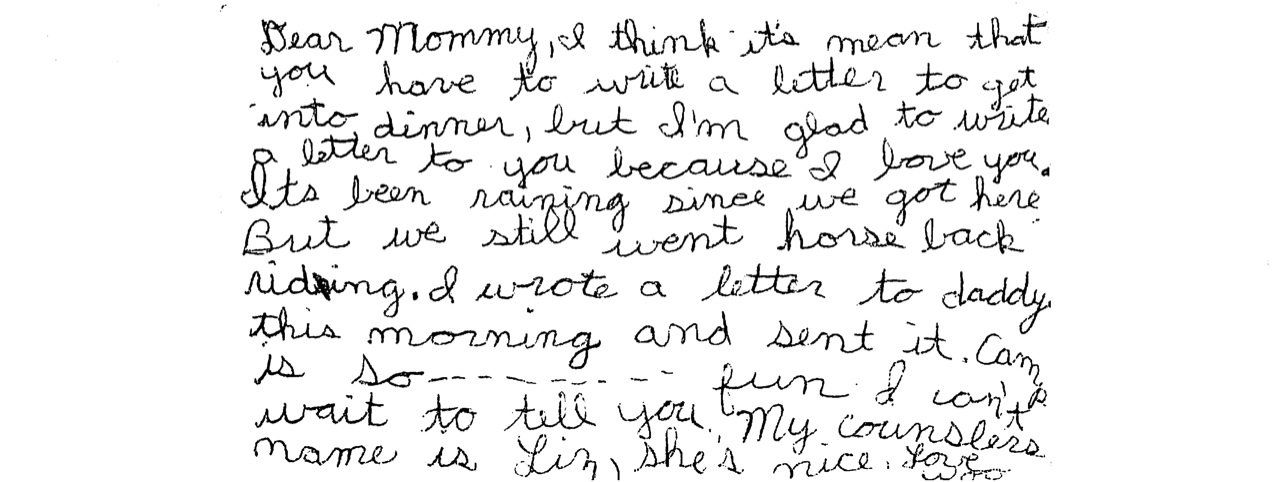
My postcard home from camp, 1977.
“Dear Mommy,
I think it’s mean that you have to write a letter to get into dinner, but I’m glad to write a letter to you because I love you. It’s been raining since we got here. But we still went horseback riding. I wrote a letter to daddy this morning and sent it. Camp is so fun. I can’t wait to tell you. My counslers name is Liz. She’s nice.
Love, Audrey”
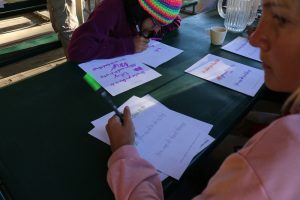 Let me tell you, we have gotten some good laughs in our house over this postcard. Not just about how I spelled “counselor,” but about my comment about the “Mail Meal” (dinners on Wednesday and Sunday that you need to have a letter or postcard home as your ticket in). The dreaded “Mail Meal” has been a camp tradition for as long as anyone can remember, but I didn’t even remember thinking it was a bad thing. My adult view is much different than my ten-year-old one! I now understand how much parents need those letters. I hope most kids get beyond the “I have to write this letter” part, and share some of their feelings and memories of camp. The resulting memorabilia will be priceless.
Let me tell you, we have gotten some good laughs in our house over this postcard. Not just about how I spelled “counselor,” but about my comment about the “Mail Meal” (dinners on Wednesday and Sunday that you need to have a letter or postcard home as your ticket in). The dreaded “Mail Meal” has been a camp tradition for as long as anyone can remember, but I didn’t even remember thinking it was a bad thing. My adult view is much different than my ten-year-old one! I now understand how much parents need those letters. I hope most kids get beyond the “I have to write this letter” part, and share some of their feelings and memories of camp. The resulting memorabilia will be priceless.
So, here’s to another benefit of camp I’ve only this week realized. We have the chance for our kids to experience the (almost) lost art of writing and receiving handwritten letters. And you, as a parent, have a chance to write down words that your child will be able to read and keep long beyond any email you’ve sent them!
P.S. Did you see this hilarious book? P.S. I Hate it Here: Letters from Camp It is full of some really funny, real letters kids wrote to their parents from camps.
Creating a grateful family culture is a challenge in our entitled, indulgent age. Yet much research has confirmed what we intuitively know – practicing gratitude and being grateful are keys to a happier life. Therefore, it’s well worth our consistent and continued effort as parents to model and teach our kids to practice gratitude. As we enter this Thanksgiving week, let’s promote gratitude in our families. After all, if we constantly dwell on what’s going wrong in our lives and in the world (and stay focused on what we don’t have), we are left feeling anxious, empty, and depressed. But when we take time to count our blessings, we shift our mindsets and become happier, more grateful people.
For those of you who would like to create a more grateful family culture, here are five family gratitude practices you might try. If your family is like most, they will likely only agree to participate in one or two of these, so choose one that resonates for you and go for it!
Just like we do with our Highs and Lows at dinner or at camp with campers around the campfire, we can get into the habit of sharing, as a family, one (or more) things we’re grateful for. This can be at family dinner, on the car ride to school, at bedtime, or whatever time works best with your family’s schedule. Just make it a daily habit and everyone will get used to it. When we’ve tried this, it seems to eventually warrant some kind of guidelines about what types of things are “shareable.” For example, being thankful for a particular video game might be appropriate to share once, but it’s best to encourage everyone to share about people and events (rather than things) they are grateful for.
This can be an ongoing family gratitude practice, perhaps kicked off at Thanksgiving and ending on New Year’s Eve. For the jar, people jot down things they are grateful for and put the notes inside. On a specified day (end of the year is good!), empty the jar and read the notes so the whole family can reflect on individual and group blessings. A board is a more visual way to show thanks. Simply tack the notes up as you think of things you’re thankful for. Having a “minimum daily or weekly requirement” of one note per person works well, just so we make it a habit and fill up our jar or board.
This is one of my favorite activities and something we’ve done for the past few years. Each family member has an oversized place card at their dining spot. Throughout the afternoon and evening, people are required to write something they appreciate or are grateful for about each person on the inside of their place card. It can be just a few words or a whole sentence, but each person needs to write on everyone’s card. These are really fun keepsakes that provide a nice boost to each family member. This can also be done as a group by passing the cards around until each person has signed each other person’s card. When your own card gets back to you, you’ve completed your warm fuzzies!
Ask each family member to find a journal that’s sitting empty or partially empty, or even a spiral notebook will do, and ask them to write down two or three things they are thankful for each day. If someone is feeling especially creative, they can even decorate their journal! From experience, it’s best not to force anyone to write in their journals! Sharing out loud, at dinner or bedtime (see #1), is better for kids who don’t enjoy writing. Perhaps a good alternative would be a family gratitude journal, completed by a parent or designated scribe, when everyone’s sharing what they’re grateful for. That would be similar to the gratitude jar or gratitude board.
Perhaps the best way to promote gratitude in our children and ourselves is reaching out and serving others who are less fortunate. There are so many opportunities this time of year (and all year long, for that matter) to participate in collection and delivery of food, toys for children, winter coats, and more. There are so many needy people, and reaching out to help others (even virtually!) not only makes us more kind and compassionate, but also more appreciative of what we have.
There are so many ways to build up our gratitude muscles, and helping our kids learn to be more grateful people can have a life-long positive impact. Here’s to an attitude of gratitude during the holidays! Happy Thanksgiving!
National Public Lands Day is September 25, 2021! NPLD is a great way to connect with nature and give back to our public lands. There are many opportunities to help restore and improve public lands across the country. For more information about National Public Lands Day and to find an event near you, visit https://www.neefusa.org/npld.
If you participate in NPLD, please send us a picture to mail@goldarrowcamp.com or tag us in your social media posts!
Check out some fun highlights and memories from Mini Camp and August Specialty! These sessions were such fun ways to end another GAC summer!
Frames and Cabin 3 host this week’s episode of WHADDA WEEK! We’ve started off Mini Camp/Shaver Specialty Week with tons of fun and we look forward to packing our next few days together with activities and special events.
Podcast: Play in new window | Download
Subscribe: Apple Podcasts | Google Podcasts | Spotify | Stitcher | Email | RSS
As always, Carnival was a blast for all campers and staff! Check out some highlights from the day here!
A highlight of the two-week session for our youngest campers (grades K-3), and their version of “backpacking,” is Bears’ Adventure. This one-night trip allows campers to experience sleeping outdoors under the stars and cooking over a campfire. Campers’ luggage is taken for them to the campsite, so they are not technically “backpacking,” because they have no pack to carry. With just their water bottle and their positive attitudes, they set out from camp singing and talking on their hike.
The best part of Bears’ Adventure is the free time kids get to play and explore the area. For many campers, the longer sticks provide the perfect start to a fort. Others enjoy laying on their sleeping bags talking with friends or silently watching clouds move overhead. Some participate in crafts and games while enjoying being outdoors. For many of these kids, Bears’ Adventure is their first experience “roughing it,” and they absolutely love it.
When they hike back into camp the morning after their Adventure, our Bears’ campers stand a little taller. And their dirty, smiling faces are the best indication that they have experienced the awe of nature.